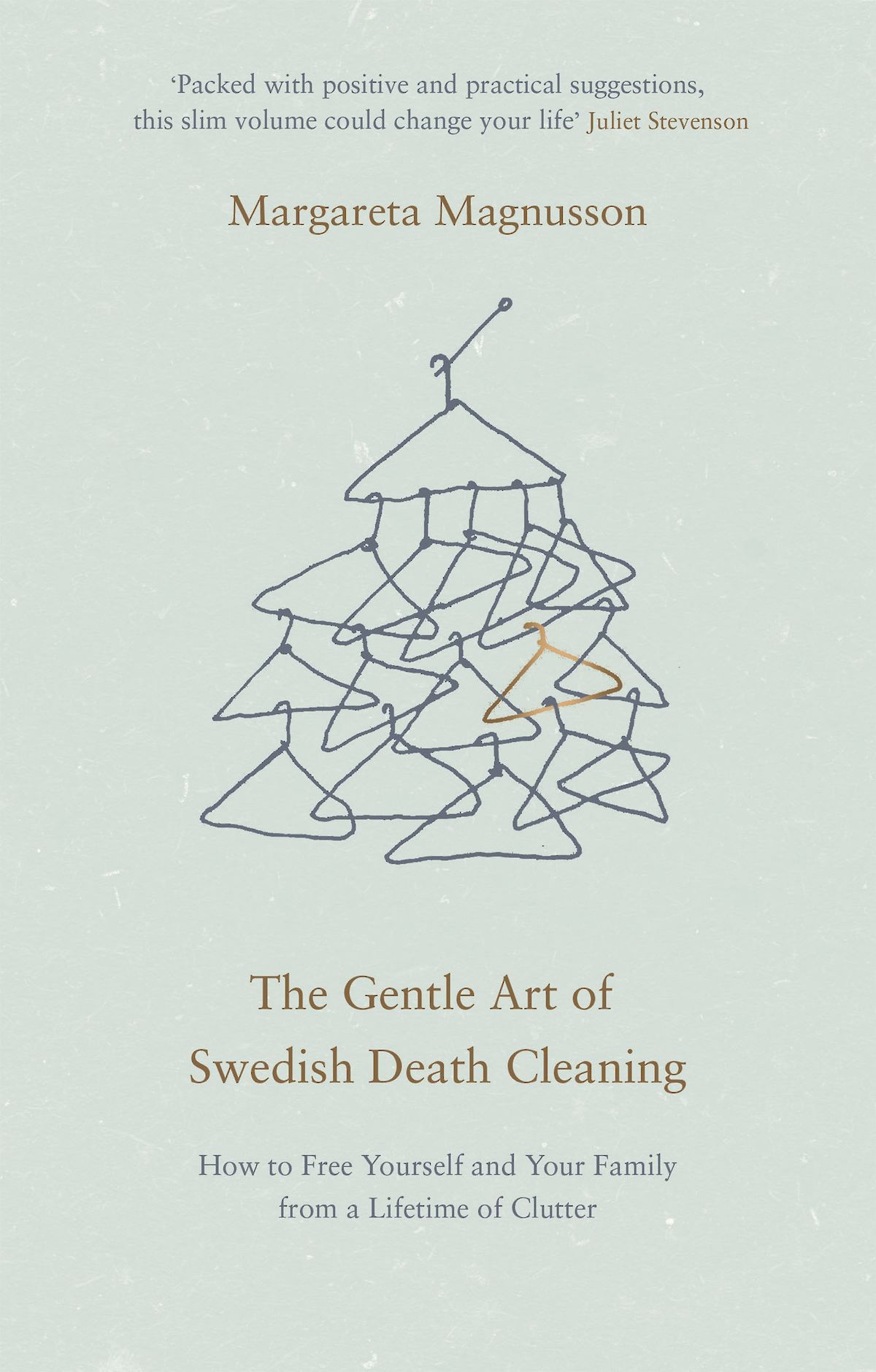A simple, easy-to-read guide to sorting heirlooms from junk before you die. It’s not sentimental nor morbid, but do you really want to clutter up your bookshelves with a book on decluttering?
Remember the time you left home and went to college or moved away for work and eventually your parents phoned and said there was a whole pile of vinyl or comics or toys and did you still want them? You ignored their entreaties and when you finally came home for Christmas and found that the said treasures had been chucked out you went crazy. “One day they’d have been worth a fortune. I love that stuff, how could you have just thrown it away?” Well, years later it won’t matter to you a jot and you might even have forgotten what those treasures where.
After the death of her parents, her in-laws, and her husband artist Margareta Magnusson “death cleaned”. The Swedish is less bald – döstädning, “dö” means “death” and “städning” is “cleaning”, which will never have the popularity of “hygge”. She simply had to declutter when she downsized from a five-bedroom house to a two-room flat. This short, appealing, and practical book can help you put your affairs in order no matter what age you are. It’s funny at times, and in no way morbid.
You don’t have to have ageing parents, a terminal illness, or one foot in the grave to consider death cleaning. Magnusson reminds us that “you can’t take it with you” and also suggests that you tactfully approach your loved ones and if there’s something you’d like of theirs when they die (or you’d like to pass on to someone), perhaps you could take it (or gift it) now. They might be grateful that that’s another thing no longer collecting dust on a shelf.
Sometimes the book seems to be stating the bleeding obvious and sometimes there’s a whiff of the goofy, gloopy Gwyneth Paltrow about it. But at other times it’s a gentle acknowledgement of the fact that life is short and that you should truly treasure the things that really matter, that living in an environment that’s tidy and where you know where things are (a hook by the front door where you leave the latch key for instance) can save a lot of exasperating time and keep nerves from shredding. If you can hardly move for junk, it is time to death clean.
There is a liberation in decluttering – getting rid of all that unwanted stuff on the cloud or in your downloads might not free up physical space but it can still weigh heavily on the mind.
Why do we hoard anyway? There’s a huge comfort to be had by having things you like around you. It’s as if providing you surround yourself with books and stuff nothing bad can ever happen to you. And let’s face it, who doesn’t get an adrenaline rush on a visit to the shops and acquiring more worldly possessions? For a younger generation au fait with texts, downloads, digital files, and “the cloud”, and for whom the need to up sticks and travel for fun or work is constant, being bogged down with accumulated junk is a no-go. There’s something hugely freeing about a spartan, minimalist lifestyle. Shedding unwanted stuff – digital and analogue – can make you feel psychologically lighter and freer.
